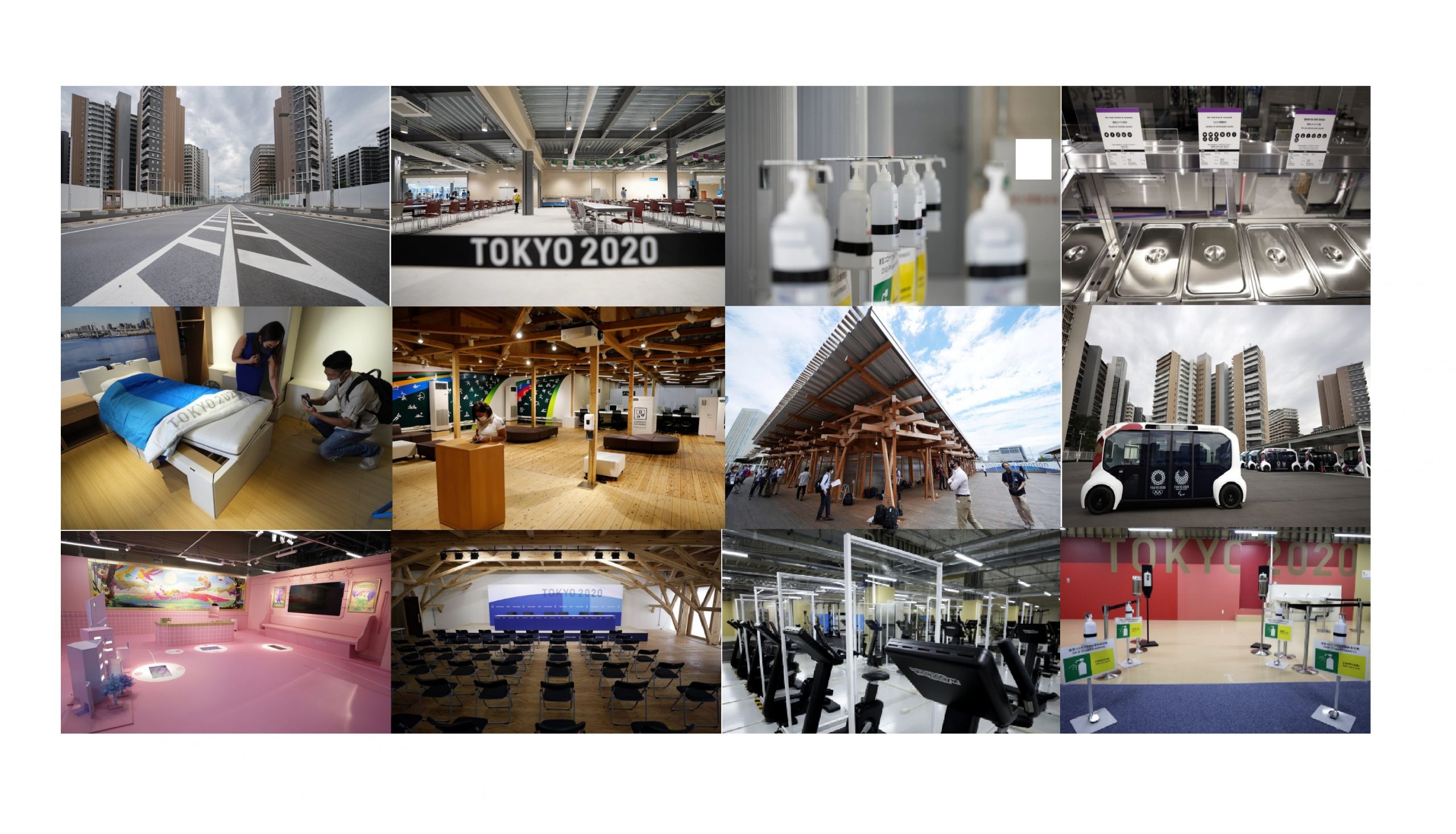Tokyo: As Japan is moving at full speed in order to host the Tokyo Olympics, organisers have started preparation of the Olympic Games Athletes’ Village.
A dense block of high-rise towers barely stands out across the sprawling skyline of the world’s largest metropolis.
The Village adheres to the strict rules that prevent athletes from venturing beyond the walls for anything other than training or competition.
The Village is where athletes from around the world will eat, sleep, pray, meditate and relax.
Alcohol will be allowed, though it can only consumed within private areas.
Athletes have been told to spend as little time in the main dining area as possible, but to just grab their meals, eat alone quickly, and return to their rooms.
Organisers expect 80 per cent of the people staying here will be vaccinated and they insist their safety protocols are rock solid.
Most rooms have two beds and a communal area, and it will be up to each country to decide who bunks with whom.
Some of the rooms in the athlete suites have two windows. Others rely on a single window and door being open to ensure sufficient ventilation.
The playbook of rules for athletes asks them to ventilate rooms regularly where possible — at least every 30 minutes, and for a period of several minutes each time.
Rooms are directly connected to the outside and organisers were confident they were sufficiently ventilated, though they did not give specifics on how frequently the air within indoor spaces was totally refreshed and replaced every hour.
At the main dining hall, organisers said it would be changed three times per hour and at the main fitness centre, they said it was being circulated constantly.
Athletes using that fitness centre will have to keep their mask on no matter what equipment or how intensely they are training.
It was unclear how this will be enforced, but the Director of the Athletes’ Services section, Atsushi Iino, said they were in discussions with the International Olympic Committee (IOC), but one possibility was banning athletes for non-compliance.
He said that running with a mask was tough, but they could not afford to have a cluster in the gym that would shut it down for several days.
All those entering Japan for the Olympics will be required to follow complex testing rules, before leaving home and after arriving.
The fever clinic at the Village will be their first port of call if they have potential COVID-19 symptoms.
Athletes must also agree to have their location monitored by GPS, and they must download several apps, sign a pledge to follow the rules, maintain social distancing, stay off public transportation for the first 14 days, and keep organisers informed of their whereabouts.
Last week Olympic officials unveiled the third version of their “playbooks” which are the rules outlining exactly what everyone coming to the Games can and cannot do.
It threatened disqualification or fines for those who breach the strict rules and provided more detail about testing procedures.
While athletes have been required to sign waivers, which are typical of the Olympics, this time, an added clause relieves the IOC of responsibility from any fallout from COVID-19.







